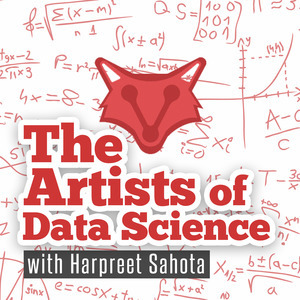Be Like Marcus Aurelius | Donald Robertson
December 7th, 2020
1 hr 26 mins 11 secs
Season 7
About this Episode
Donald is a trainer and former Cognitive-Behavioural Psychotherapist, with a background in academic philosophy, who specializes in eLearning and web development. He's been involved in research on the use of eLearning as a vehicle for delivering training in CBT self-help. He's also interested in the relationship between ancient Stoic philosophy and modern evidence-based approaches to psychological-resilience training.
FIND DONALD ONLINE
Website: https://donaldrobertson.name/
LinkedIn: https://www.linkedin.com/in/donaldjrobertson/
QUOTES
[00:06:25] "I realize that Stoicism was the type of philosophy that inspired cognitive behavioral therapy. And so everything kind of came together for me. I saw the connection between philosophy and psychotherapy and a particular type of philosophy that ended up spending the rest of my life studying. "
[00:10:41] "Therapists and researchers developed what's called the cognitive theory of emotion, which says our emotions are shaped fundamentally by underlying beliefs or cognitions. And that happens to be essentially what the Stoics also believed 2300 years ago."
[00:19:04] "The Stoics want us to reappraise our values so that we realize that our own faculty of judgment is really important and our own character is really important. "
[00:20:18] "Stoicism and Socratic philosophy are designed to counteract the use of rhetoric, propaganda, emotional tactics that the media use in the same way that the sophists used to use them to manipulate crowds in ancient Athens, in ancient Rome. "
[00:23:33] "But just asking in casual conversation, what makes somebody wise rather than smart, clever, shrewd by interesting conversation. That's the type of conversation that Socrates thought we should be having."
[00:24:54] "Maybe wisdom consists in being able to look at what other people think is important and realizing that it isn't. And realizing that things that other people seem to be ignoring are actually much more important. That shift in our values changes our emotions or behavior or quality of life, potentially."
[00:28:23] "Wisdom is the fundamental virtue of understanding the value of things. And then justice consists in understanding and to practice in terms of how you relate to society and your family and your friends and other individuals."
[00:29:32] "Courage is a virtue that we require in order to overcome the passion or the emotion of fear and to master that."
[01:12:56] "Marcus wants us to recognize our own imperfection and bias that's integral to Stoicism, to realize that we are creatures of passion. None of us are perfect. None of the Stoics found those claimed to be gurus of perfect."
SHOW NOTES
[00:01:51] Guest Introduction
[00:05:19] How different is life now than you had imagined it would be when you were younger
[00:06:13] How psychotherapy lead Donald to Stoicism
[00:08:09] The relationship between CBT and Stoicism
[00:14:35] How could CBT and Stoicism help us stay focused in a world where everything is meant to distract us?
[00:20:44] Human nature hasn’t changed much
[00:22:31] The Stoic concept of practical wisdom.
[00:25:56] The cardinal virtues
[00:31:55] Passions versus virtues
[00:38:33] People may think that those who practice Stoicism are cold or unemotional, but that's not
[00:41:34] The circles of Hierocles
[00:47:15] What can Marcus teach us about improving our relationship with ourselves?
[00:52:49] Helping those around you flourish
[00:54:42] Who are some of the teachers and mentors that Marcus talks about and what role did these teachers and mentors play in his life?
[01:04:57] How Lucius Verus improved Marcus’ character
[01:10:02] What can we learn about being better teammates from Marcus?
[01:16:16] It is one hundred years in the future. What do you want to be remembered for?
[01:18:00] The Random Round
